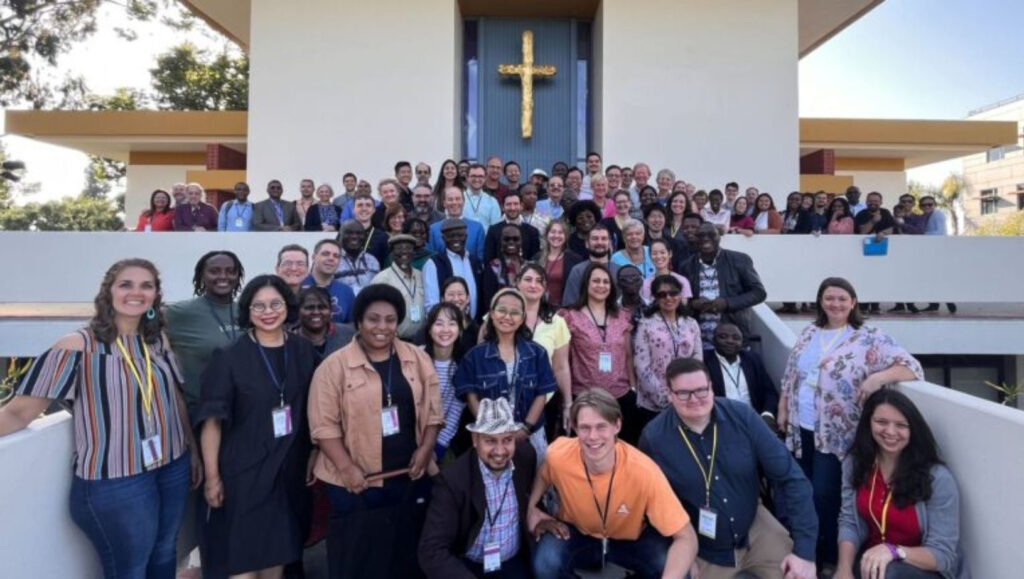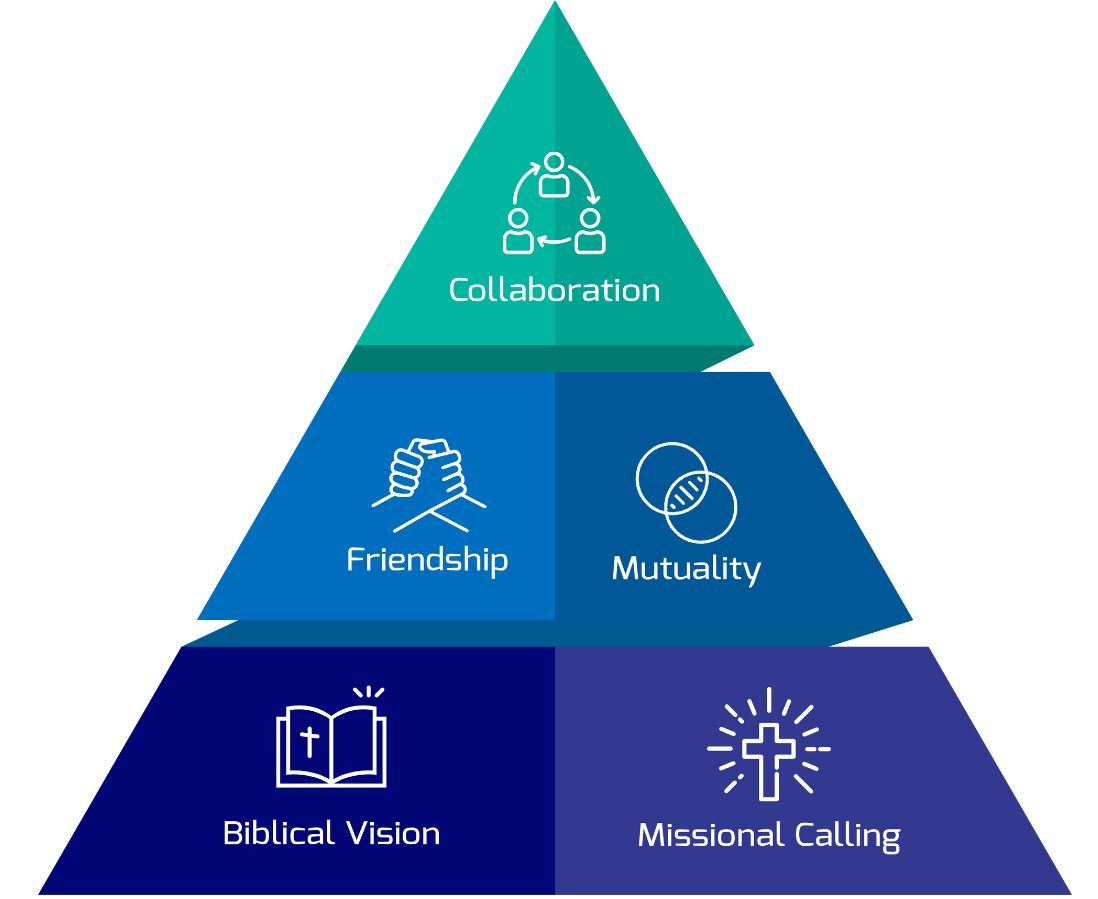Navigating the Complexity of Diversity
In a world teeming with diversity, the imperative of building bridges across generations, cultures, and divides becomes increasingly important for the global church. The Lausanne Generations Conversation 2023 (LGC23) acknowledged the complexity of this challenge, seeking to draw on the invaluable insights gained from bringing together Christian leaders spanning five generations and 41 nations. This conversation-style gathering sought to explore best practices for building bridges across diverse communities.

Lausanne Generations Conversation
The Lausanne Generations Conversation took place at Biola University, California, mid-2023. LGC23 emerged as a vibrant tapestry of intergenerational collaboration, highlighting the richness that each generation brings to global mission and identifying key insights that can guide effective intergenerational leadership and form principles that can be applied in diverse communities. The Lausanne Movement has long stood as a beacon for unity within the global church; however, the unique focus of LGC23 on intergenerational leadership brought a fresh perspective. The gathering was not just a forum for discussion but a dynamic crucible where five generations actively engaged, challenged, and enriched one another as friendships were formed. LGC23, together with the global listening calls, focus group calls, and regional gatherings, formed part of the framework for the Lausanne 4 journey and engaging the Seoul 2024 Congress.
The Leadership Pyramid: Building Bridges
At the heart of LGC23’s success was the Intergenerational Leadership Pyramid. This innovative tool proved instrumental in fostering collaboration across age groups and diverse communities.
Built on a foundation of biblical vision and missional calling, the pyramid emphasises two critical building blocks: intergenerational friendships and mutuality. Together, these inspire a strategy for collaborative action for kingdom impact in every sphere of society.

Biblical Vision: A Firm Foundation for Collaboration
A vision for building bridges in diverse communities needs to be framed and guided by Scripture. At LGC23, Nana Yaw Offei Awuku, Lausanne’s global director for generations, observed that the Great Commission in Matthew 28:18–20 has a time dimension that is often overlooked. Not only did Jesus command his disciples to make disciples of all nations, the commission was ‘to the end of the age’—from generation to generation. In other words, reached people groups can become unreached if they are not reached generationally. Likewise, every community has a role to play in fulfilling the Great Commission. It will take the whole church to reach the whole world.

Missional Calling: A Call to Collaborative Action
A call to collaborative action is embedded in a call to global mission. Knowing the gifts each member brings to the team and drawing those gifts out so that they can be utilised and developed aids in the collaborative process. When we put the outcome ahead of the process, we can miss out on the full expression of gifts present and the final outcome may not be as vivid as its full potential.

Mutuality: A Recipe for Collaboration
Mutuality ensures that relationships are mutually beneficial. By intentionally cultivating trust, humility, respect, empathy, and reconciliation, relational bridges become strong enough to withstand challenging conversations. Authentic friendships emerge, where both parties contribute to global mission effectively.

Friendship: Beyond Partnerships
Friendship, a key element of the pyramid, transcends traditional partnership models. This missional-partnership approach involves side-by-side engagement, leveraging common interests towards shared goals. Partnerships like these are kingdom-building friendships across generations, cultures, genders, and missional interests.
reached people groups can become unreached if they are not reached generationally.
The success of LGC23, mirrored in the pyramid’s design, lay in diverse voices collaborating towards a common vision. This collaborative approach not only enriched the process but also ensured that the final outcome was vibrant and dynamic.

Overcoming Complexity in Other Contexts
Collaboration requires compromise and invites tension between the desired product and process. By embracing this tension, leaders can navigate the complexities of diverse communities, fostering unity through intentional friendship and mutual respect.
Recognising the need to learn from those who are different from oneself requires humility. Listening is one way we demonstrate this humility.
While the path to collaboration is often slow and may be turbulent, leaders should be open to accepting that sometimes the development that happens in the process is more important than the result. Recognising the need to learn from those who are different from oneself requires humility. Listening is one way we demonstrate this humility. This curiosity to learn from others requires more intentionality and patience than we are often willing to give.
Lessons from LGC23
Contextualising the leadership pyramid and key takeaways as a tool for building bridges extends beyond the LGC23 setting. Some general principles as well as pitfalls to collaborating across diverse missional communities were identified:
Pitfalls in collaboration:
- Viewing differences as barriers to relationship (e.g., age, gender, marital status, nationality, culture, language, worldview, personality, power distance, energy levels, pace of activity or expression, etc.)
- Pride (assuming that another doesn’t have anything to offer; talking too much or giving advice too quickly; self-focused)
- Insecurity/Fear (apprehension about being ‘too old’ or ‘too young’ leads to not initiating, not sharing; fear of saying the wrong thing or offending; hesitancy in relating or sharing; fear of rejection; fear of conflict)
- Assumptions/Prejudice (blindspots, lack of awareness or openness to another’s perspective; inflexibility, over-rigidity; viewing older leaders as outdated or younger leaders as immature)
- Low value on relationship (insufficient time for establishing trust; moving to task before building relationship; lack of energy for engagement)
Principles for collaboration:
- Missional friendships are both side-by-side and outward: intentionally developing relationships and engaging common interests for common goals.
- Mutuality is made possible when there is trust, humility, respect, empathy, and reconciliation.
- Leaders recognize gifts in others and make space for their development by delegating responsibility with corresponding authority.
- Experienced leaders can bless emerging leaders through encouraging, empowering, and opening doors for them.
- Appreciating what different generations [communities] have to offer strengthens collaboration.
The following are some best practices for building friendships across diverse missional communities that can also be applied:
- Make time for building relationships before focusing on task; cultivate trust
- Express interest in another’s experience and perspective (ask with an openness to learn; create space to hear)
- Find common ground (interests, experiences, goals, etc.)
- Take initiative (be welcoming and friendly; invite others to join in; start conversations)
- Be generous with your attention (show genuine interest)
- Extend affirmation, encouragement, and honour
- Demonstrate hospitality and generosity
- Look for opportunities to extend kindness
- Be slow to take offence (ask clarifying questions; give second chances; apologise; forgive; stay engaged when experiencing dissonance; respond politely)

Unity Amidst Diversity
The unity experienced amidst diversity at LGC23 serves as a beacon of hope for our fragmented world. As we look forward, the lessons from LGC23 and the principles of the Intergenerational Leadership Pyramid will undoubtedly inform and enhance collaborative efforts across diverse communities.
The journey through LGC23 represents a paradigm shift in how we approach collaboration and unity within the global church. It’s not just about bridging gaps—it’s about building interconnected communities that draw strength from their diversity. As we contextualise the insights from LGC23 and apply the principles that emerged as a result, we embark on a transformative journey toward a more unified, dynamic, and missionally vibrant global church.


